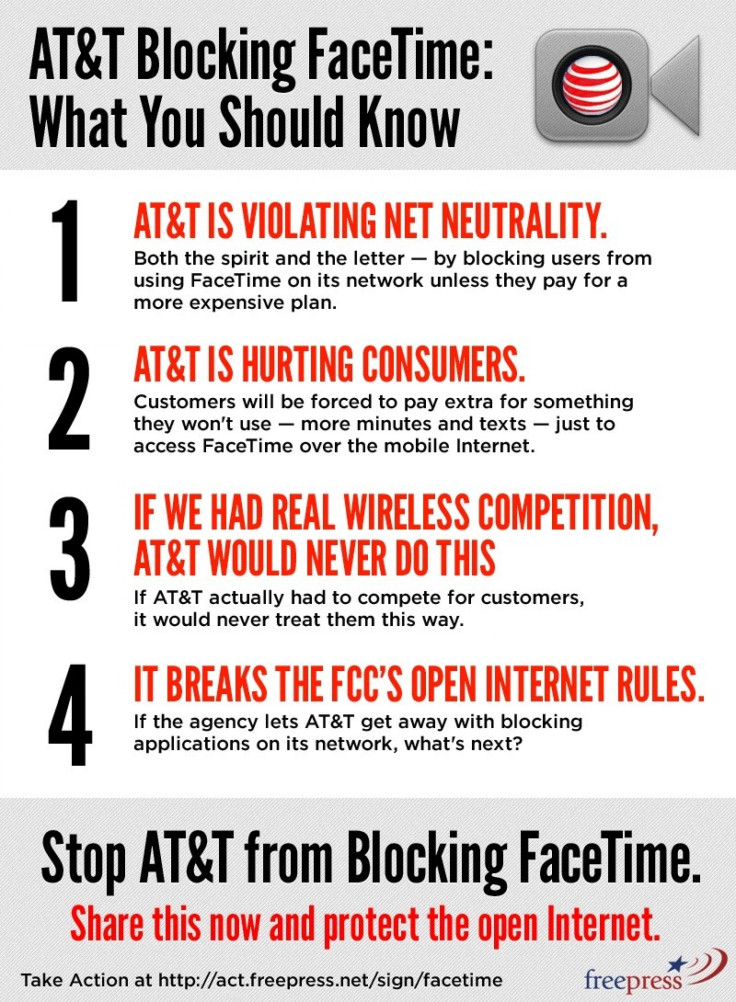Backlash Grows Over AT&T Move To Make More Money Off FaceTime Use On Apple IPhone

A major outcry has broken out over AT&T's August 17 move to make more money off customers who use the popular FaceTime feature on their Apple iPhones, drawing criticism from a wide range of sources.
FaceTime is a popular feature of Apple's iPhone 4 and 4S that allows for video chat between two iPhone, iPad or MacBook users. FaceTime is preferred by many thrifty phone-users and minutes-watchers because it a free service does not require the use of phone minutes.
But apparently AT&T is not a fan of its customers being able to avoid spending huge amounts of money on minutes and overage charges, and on Friday it announced that it will now require that they sign up for new mobile share plans starting later this month if they want to continue to use FaceTime over 3G and 4G networks, according to Apple Insider. The feature will be unchanged for use over wireless networks.
And that move has generated a lot of kickback and controversy from customers, Net neutrality advocates, politicians and other folks who consider it an unfair example of corporate overreach to take away the FaceTime feature, which is free for Apple iPhone users who use other carriers like Verizon.
Public Knowledge, an interest group that works to keep the Web open and advocates on behalf of consumers in cases where large corporations attempt to restrict their Internet freedoms, issued a press release condemning AT&T's plan.
The group sent out a press release the day the change was announced, and it quotes John Bergmayer, Senior Staff Attorney at Public Interest Group, who said the following:
"By blocking FaceTime for many of its customers, AT&T is violating the FCC's Open Internet rules. These rules state that mobile providers shall not 'block applications that compete with the provider's voice or video telephony services.' Although carriers are permitted to engage in 'reasonable network management,' there is no technical reason why one data plan should be able to access FaceTime, and another not.
"'Over-the-top' communications services like FaceTime are a threat to carriers' revenue, but they should respond by competing with these services and not by engaging in discriminatory behavior."
The advocacy group Free Press is launching a major campaign to try to get AT&T to drop its plans, as the group sees it as a major affront to people's Internet freedoms and rights.
It has set up a petition to raise awareness, and has made extensive information available on SaveTheInternet.com. The group boils the issue down to four main points: "AT&T is violating Net Neutrality," "AT&T is hurting customers," "if we had real wireless competition, AT&T would never do this," and "It breaks the FCC's open Internet rules."
It remains to be seen just what will come of this decision by AT&T, but so far the company looks to have no plans to revoke its decision to change the way thousands of people speak on their iPhones.
© Copyright IBTimes 2024. All rights reserved.











